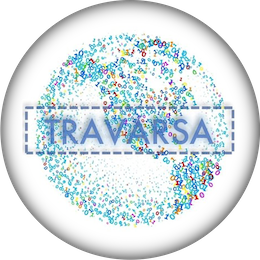Unlock the power of Marketing Automation with Machine Learning. Elevate your strategies, engage....
Read MoreHow to start your career as a Software Testing Engineer ?

Embarking on a career as a Software Testing Engineer opens the gateway to a realm where precision, meticulousness, and technical acumen converge to ensure the seamless functionality of digital innovations. In this article, we unveil a step-by-step roadmap for aspiring testers, delving into the foundational principles, diverse testing types, and the indispensable programming and tool proficiency required to thrive in this dynamic field.
Whether you’re navigating through manual testing intricacies or exploring the realms of automated and performance testing, join us on this insightful journey as we decode the intricacies of launching a successful career as a Software Testing Engineer.
Who is a Software Testing Engineer?
A Software Testing Engineer is a dedicated professional responsible for ensuring the quality and reliability of software applications before they are released to end-users. These individuals play a critical role in the software development life cycle, working closely with development teams to identify and rectify defects, ensuring that the final product meets the specified requirements and functions seamlessly.
Roles and Responsibilities:
- Test Planning:
Collaborate with project stakeholders to create comprehensive test plans outlining testing scope, resources, and schedules. - Test Case Design:
Develop detailed test cases based on functional and technical specifications, ensuring thorough coverage of all application features. - Manual Testing:
Execute manual tests to validate software functionality, identify defects, and ensure compliance with design specifications. - Automated Testing:
Develop and implement automated test scripts using testing frameworks to enhance efficiency, especially for repetitive and regression testing. - Types of Testing:
Conduct various types of testing, including functional, non-functional (performance, security), regression, and user acceptance testing (UAT). - Defect Identification and Reporting:
Identify and document defects, providing detailed information to development teams for resolution. - Collaboration with Development Teams:
Work closely with developers to understand application features, behavior, and troubleshoot issues for efficient defect resolution. - Continuous Integration and Deployment (CI/CD):
Integrate testing processes into CI/CD pipelines, ensuring continuous monitoring of code quality and application performance. - Test Documentation:
Maintain comprehensive test documentation, including test cases, test scripts, and test results, for future reference and audits. - Performance Testing:
Conduct performance testing to evaluate system responsiveness, scalability, and reliability under varying conditions. - Security Testing:
Identify potential security vulnerabilities and conduct testing to ensure the robustness of the application against potential threats. - Test Management:
Utilize test management tools to organize and track test cases, executions, and overall testing progress. - User Training:
Provide training to end-users on software applications, ensuring a smooth transition to the new or updated system. - Feedback and Improvement:
Collaborate with development teams to provide feedback on software quality, contributing to continuous improvement processes.
A Software Testing Engineer is pivotal in delivering high-quality software, ensuring that end-users experience reliable and efficient applications. With a keen eye for detail and a comprehensive understanding of testing methodologies, these professionals play a crucial role in the overall success of software development projects.
How to start your career as a Software Testing Engineer ?
Here’s a comprehensive breakdown on how to kick-start with Software Testing.
Step 1: Establish the Foundation
- Understand Basics:
Programming Fundamentals: Learn basics of programming languages, such as Python or Java. - Explore Software Development Life Cycle (SDLC):
Gain knowledge of SDLC phases and the role of testing in each phase.
Step 2: Introduction to Testing
- Learn Manual Testing:
Understand the principles of manual testing.
Master test case design and execution. - Explore Automated Testing Basics:
Introduce basic concepts of automated testing.
Learn about popular automated testing tools like Selenium or Appium.
Step 3: Types of Testing
- Master Different Testing Types:
Functional Testing: Validate that software functions as intended.
Non-Functional Testing: Assess non-functional aspects (performance, security).
Regression Testing: Ensure new changes don’t impact existing functionality.
User Acceptance Testing (UAT): Validate software with end-users. - Specialize in Automated Testing:
API Testing: Use tools like Postman or REST Assured.
Mobile Testing: Utilize Appium or XCTest for mobile applications.
Performance Testing: Learn tools like JMeter or LoadRunner.
Step 4: Programming and Scripting Skills
- Advanced Programming Skills:
Java, Python, or Ruby: Master a programming language for automation.
SQL: Understand database queries for data validation.
Step 5: Testing Frameworks
- Explore Testing Frameworks:
JUnit/TestNG (Java), Pytest (Python): Commonly used testing frameworks.
Cucumber (BDD): Understand behavior-driven development.
Step 6: Version Control and Collaboration Tools
- Version Control Systems:
Git: Learn version control for collaboration. - Collaboration Tools:
Jira, Trello: Understand project management tools.
Step 7: Test Management and Reporting
- Learn Test Management Tools:
TestRail, Zephyr: Manage test cases and track execution. - Reporting and Documentation:
Generate Test Reports: Utilize tools for effective reporting.
Documentation Skills: Develop comprehensive test documentation.
Step 8: Continuous Learning and Specialization
- Stay Updated:
Follow Industry Trends: Stay informed about new testing methodologies and tools. - Certifications and Specialization:
ISTQB Certification: Consider industry-recognized certifications.
Security Testing: Specialize in security testing tools and techniques.
Recommended Certifications for Software Testing Engineer
Certifications can greatly enhance the skills and credibility of a Software Testing Engineer. Here are some recommended certifications:
- ISTQB (International Software Testing Qualifications Board) Certification:
Foundation Level: Covers fundamental principles of software testing.
Advanced Level: Offers specialization in various aspects like Test Manager, Test Analyst, etc. - ISTQB Agile Tester Certification:
Focuses on testing in an Agile development environment, addressing the unique challenges and methodologies. - Certified Software Testing Professional (CSTP):
Offers a comprehensive understanding of software testing principles, techniques, and tools. - Certified Associate in Software Testing (CAST):
Provided by the International Software Certifications Board, covering foundational testing concepts. - Certified Software Test Engineer (CSTE):
Emphasizes the practical application of software testing principles and techniques. - Certified Manager of Software Testing (CMST):
Geared towards testing managers, focusing on leadership and management skills in a testing environment. - Certified Agile Process Owner (CAPO):
Covers Agile methodologies, enhancing the understanding of testing in Agile development. - Certified Performance Testing Professional (CPTP):
Focuses on performance testing techniques, tools, and best practices. - Certified Mobile Tester (CMT):
Specializes in mobile application testing, covering challenges unique to mobile platforms. - Certified Ethical Hacker (CEH):
Provides insights into ethical hacking and security testing, enhancing understanding of potential vulnerabilities. - Certified Automation Testing Professional (CATP):
Focuses on automation testing tools and frameworks, including Selenium, Appium, and others. - Certified Selenium Professional:
Validates proficiency in Selenium, a widely-used automation testing tool. - Certified Performance and Load Testing Professional (CPLTP):
Specializes in performance and load testing, covering tools like JMeter, LoadRunner, and others. - Certified ScrumMaster (CSM):
Provides an understanding of Scrum principles and practices, beneficial for Agile testing environments. - Certified DevOps Test Engineer:
Focuses on integrating testing into the DevOps pipeline, covering continuous testing and delivery.
Remember to choose certifications based on your career goals, the technologies you work with, and the specific aspects of testing you want to specialize in. Certifications can not only validate your skills but also provide structured learning paths in the ever-evolving field of software testing.
As you conclude this insightful guide on launching a career as a Software Testing Engineer, remember that adaptability and continuous learning are your steadfast companions in this ever-evolving field. Stay abreast of emerging testing methodologies, embrace automation advancements, and refine your skills to become a versatile testing professional. Armed with a diverse skill set, you’re well-prepared to navigate the complexities of software testing, ensuring the robustness and reliability of digital landscapes.
Comprehensive Guide to JavaScript Frameworks
Explore the diverse world of JavaScript frameworks and libraries for modern web development.....
Read MoreAdvance PR Strategies in Marketing: Benefits & Tools
Discover the power of PR in marketing. Learn about the benefits & tools....
Read MoreInfluencer Whisper Campaigns – Strategies & Tools
Discover the strategies & tools behind Influencer Whisper Campaigns. Learn how brands can....
Read MoreTop 10 Digital Forensics Strategies
Unlock the power of Marketing Automation with Machine Learning. Elevate your strategies, engage....
Read MoreImportance of Directory Submission
We at Traversa are providing the best online SEO consulting service and consider....
Read More





